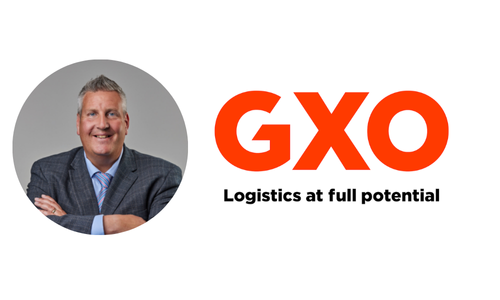🕒 Article read time: 3 minutes
The road to more sustainable logistics
Sponsored content

By Chris Hyde, Managing Director – Transport Solutions, GXO.

As the impact of climate change becomes increasingly apparent, there is growing consumer pressure for companies to reduce environmental impact across the supply chain. In addition, logistics, including transport, is a clear target for regulatory bodies as one of the largest-emitting sectors, currently accounting for just over a third of global carbon emissions. It’s clear businesses must review their operations.
Yet transforming an essential function like transportation requires deep experience and expertise alongside infrastructure and investment. This is where a consultative and experienced logistics partner can help. What we’ve learned at GXO from investing heavily in our fleet and transport operations is that the road is slightly different for every business.
Powering smarter logistics
Ultimately, we’re driving towards fully electrified, battery-based fleets, which are increasingly viable as the technology gets better and cheaper. Yet currently the upfront costs of establishing EVs can be prohibitive, and range limitations on battery technology for long-haul journeys and infrastructure requirements for underdeveloped EV charging are expensive and time-consuming obstacles.
While EVs are not yet a universal solution, we can’t afford to simply wait until they reach full maturity before acting. The road forward requires exploration and innovation to reach net-zero operations.
At GXO we’re at the forefront of trialling alternative fuels. Options including liquified natural gas (LNG), hydrotreated vegetable oil (HVO) and compressed natural gas (CNG) offer bridging solutions in the short to medium term in contexts where EVs don’t yet make sense.
A CNG truck today delivers a 19% reduction in carbon emissions, while bioCNG (biogas) can deliver up to 78% reduction. These solutions are much more comparable to diesel, operationally and economically, than an EV and can be adopted with minimal disruption in the near-term.
Designing journeys for the future
Low-carbon logistics is also about optimising how we use existing fleet. We’re able to reduce emissions by specifying the right level of capacity and range to improve route execution. This can be further supported with more efficient backhauling, ensuring that vehicles are doing useful work on return journeys, transporting waste or carrying returns.
Consolidating routes means fewer trucks on the road, tackling issues around air quality and congestion as well as driving down overall emissions. GXO leads the way in trialling and adopting the latest solutions to produce meaningful insights from the huge volumes of data produced by millions of routes driven every year. From AI-based route planning tools to integrated data lakes, we’re using technology to uncover more efficient approaches.
By improving route efficiency, we helped a leading grocer to reduce the distance driven from one depot by over 900,000 kilometres per year, decreasing diesel consumption by over 250,000 litres and delivering over 720 tonnes of overall carbon emission savings to date.
Taking the first step
Through investment in technology, vehicle innovation and planning excellence, it’s possible to make progress decarbonising your fleet now. Utilising a diverse range of logistics solutions while electric vehicles evolve ensures your strategy meets today’s needs while moving, step by step, towards a low-carbon future.
Navigating the journey isn’t simple but working with a consultative and innovative partner like GXO helps businesses to take the first step today and effectively prepare them for the road to more sustainable logistics.
Published On: 07/11/2024 15:00:00

Comments Section
If you are a Logistics UK member login to add comments.